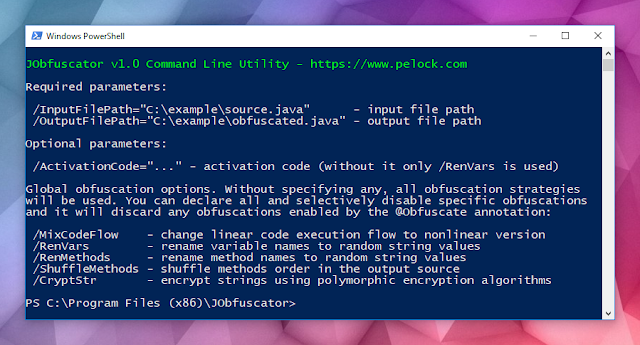If you would like to protect your AutoIt scripts from hackers and decompilation you might want to obfuscate their source code with an AutoIt Obfuscator.
Obfuscation protects the original AutoIt source code against analysis & reverse engineering. Unfortunately, AutoIt decompilation is easy with tools like aut2exe (try it yourself).
Obfuscation protects the AutoIt code against reversing, so even after decompilation the source code will stay safe from prying eyes, hackers, and competition.
Now it's possible to automate this process using Python 3 code with a dedicated Python 3 module:
https://pypi.org/project/autoitobfuscator/
Source code of this module along with usage examples is available at GitHub:
https://github.com/PELock/AutoIt-Obfuscator-Python
Sample usage example in Python:
#!/usr/bin/env python
###############################################################################
#
# AutoIt Obfuscator WebApi interface usage example.
#
# In this example we will obfuscate sample source with default options.
#
# Version : v1.0
# Language : Python
# Author : Bartosz Wójcik
# Web page : https://www.pelock.com
#
###############################################################################
#
# include AutoIt Obfuscator module
#
from autoitobfuscator import AutoItObfuscator
#
# if you don't want to use Python module, you can import directly from the file
#
#from pelock.autoitobfuscator import AutoItObfuscator
#
# create AutoIt Obfuscator class instance (we are using our activation key)
#
myAutoItObfuscator = AutoItObfuscator("ABCD-ABCD-ABCD-ABCD")
#
# source code in AutoIt v3 format
#
scriptSourceCode = 'ConsoleWrite("Hello World")'
#
# by default all options are enabled, both helper random numbers
# generation & obfuscation strategies, so we can just simply call:
#
result = myAutoItObfuscator.obfuscate_script_source(scriptSourceCode)
#
# it's also possible to pass script path instead of a string with the source e.g.
#
# result = myAutoItObfuscator.obfuscate_script_file("/path/to/script/source.au3")
#
# result[] array holds the obfuscation results as well as other information
#
# result["error"] - error code
# result["output"] - obfuscated code
# result["demo"] - was it used in demo mode (invalid or empty activation key was used)
# result["credits_left"] - usage credits left after this operation
# result["credits_total"] - total number of credits for this activation code
# result["expired"] - if this was the last usage credit for the activation key it will be set to True
#
if result and "error" in result:
# display obfuscated code
if result["error"] == AutoItObfuscator.ERROR_SUCCESS:
# format output code for HTML display
print(result["output"])
else:
print(f'An error occurred, error code: {result["error"]}')
else:
print("Something unexpected happen while trying to obfuscate the code.")






